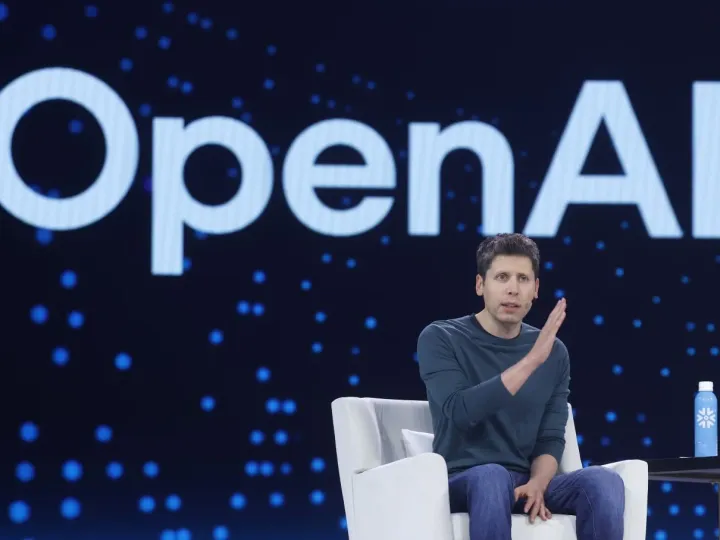Forget OpenAI? Mira Murati’s Thinking Machines Aims to Revolutionize AI

Mira Murati Launches Thinking Machines—A Startup Focused on Human-Centric AI
A New AI Revolution Begins
Former OpenAI CTO Mira Murati has announced the launch of her new artificial intelligence startup, Thinking Machines. With a vision to create accessible, customizable, and human-collaborative AI systems, the company is setting out to reshape the AI landscape.
Unlike many AI companies focused solely on autonomous intelligence, Thinking Machines aims to develop AI that works with people rather than replacing them. Murati and her team believe that AI should be personalized and adaptable, allowing individuals to tailor AI systems to their unique needs.
“We’re building a future where everyone has access to the knowledge and tools to make AI work for their unique needs and goals,” the company states.
But how exactly does Thinking Machines plan to achieve this? Let’s take a deep dive into its mission, technology, and potential impact.
Bridging the AI Accessibility Gap
Why AI Needs to Be More Customizable
Despite the rapid advancements in AI, accessibility remains a major challenge. Most state-of-the-art AI systems are developed within elite research labs, leaving limited room for public engagement or customization.
Murati’s team believes that current AI models:
. Are too centralized, limiting public access to knowledge.
. Lack personalization, making them difficult to adapt for different industries.
. Are not always user-friendly, restricting practical applications.
By addressing these issues, Thinking Machines hopes to create AI that is:
. More transparent—sharing research with the public.
. Highly customizable—allowing businesses and individuals to tailor AI to their needs.
. Safer and more ethical—by prioritizing AI alignment and security.
A Human-Centric Approach to AI Development
AI That Works With Humans, Not Against Them
A key differentiator of Thinking Machines is its collaborative approach to AI. Instead of replacing human expertise, the company envisions AI systems that enhance and support decision-making across various fields, from scientific research to creative industries.
One way the company aims to achieve this is through multimodal AI—AI systems that can process and understand different types of data, including:
- Text (like ChatGPT)
- Images (similar to DALL·E)
- Video and audio (for richer, more interactive AI experiences)
These multimodal capabilities will allow AI to seamlessly interact with humans, adapting to different tasks and user preferences.
“Scientific progress is a collective effort,” the company states. “We believe that we’ll most effectively advance humanity’s understanding of AI by collaborating with the wider community of researchers and builders.”
Building the Next Generation of AI
Advanced AI Models & Infrastructure
Murati’s team is taking a methodical, long-term approach to AI development, focusing on two primary pillars:
1. Smarter AI Models
- Thinking Machines aims to develop frontier AI models capable of tackling complex challenges in programming, engineering, and scientific research.
- These models will push beyond traditional AI boundaries, potentially uncovering new scientific discoveries and engineering innovations.
2. High-Quality AI Infrastructure
- The company is equally committed to building secure, scalable AI infrastructure that enhances productivity.
- Instead of rushing to deploy AI products, Thinking Machines is focusing on long-term stability and ethical AI development.
By integrating advanced multimodal capabilities, the company hopes to create AI that is not just powerful, but also intuitive and human-friendly.
Ethical AI and Safety Measures
Ensuring AI Safety Through Continuous Learning
Unlike some AI companies that prioritize rapid deployment, Thinking Machines is committed to responsible AI development.
The startup’s AI safety framework is built on three core principles:
1. Maintaining high safety standards to prevent AI misuse while preserving user freedoms.
2. Sharing best practices with the industry to enhance AI security.
3. Accelerating external research by providing public access to AI datasets and model specifications.
The company also emphasizes that the most meaningful AI advancements come not just from optimizing existing models, but from rethinking the entire AI development process.
“The biggest breakthroughs happen when we rethink our objectives, not just optimize existing metrics.”
By blending research, product development, and real-world testing, Thinking Machines aims to create AI systems that truly benefit society.
The Minds Behind Thinking Machines
Murati has assembled a world-class team of AI experts, including engineers and researchers who have previously worked on:
- ChatGPT (one of the most widely used AI models)
- Character.ai (pioneering conversational AI)
- PyTorch & OpenAI Gym (popular open-source AI frameworks)
With such deep expertise in AI development, Thinking Machines is poised to become a major player in the industry.
What Sets Thinking Machines Apart?
Unlike many AI companies focused purely on scalability and automation, Murati’s startup stands out for its commitment to:
. Openness – Sharing AI research and progress with the public.
. Human-AI Collaboration – Designing AI systems that complement human expertise.
. Customization – Allowing businesses and individuals to adapt AI for their specific needs.
. Safety & Ethics – Prioritizing responsible AI development and long-term impact.
By focusing on these principles, Thinking Machines hopes to provide an alternative to traditional AI models, offering smarter, safer, and more accessible AI solutions.
A New AI Era?
Mira Murati’s new venture marks a significant shift in AI development. With a mission to create AI that is collaborative, customizable, and transparent, Thinking Machines could redefine how we interact with artificial intelligence.
As AI continues to evolve, companies like Thinking Machines may hold the key to a more ethical and human-centric AI future.



